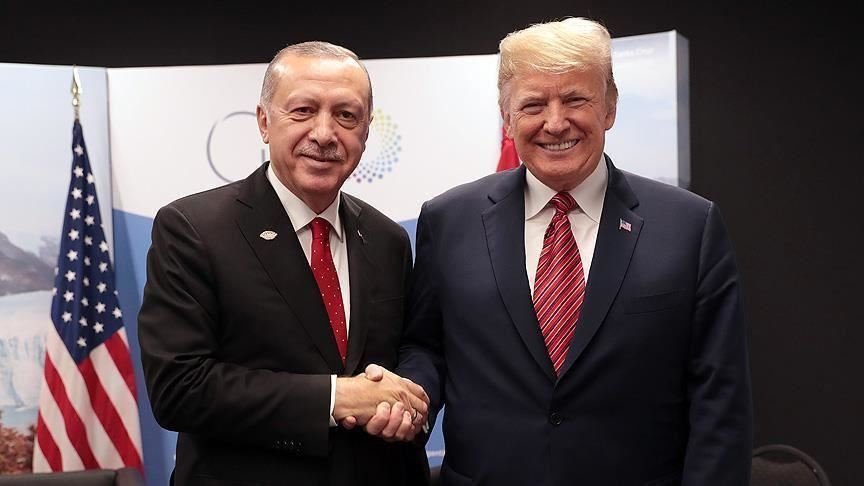President Recep Tayyip Erdoğan’s statements during his visit to the United States for the 80th UN General Assembly, along with his meeting with Donald Trump at the White House on September 25, 2025, carry direct implications and messages for both Türkiye–US relations and broader regional developments.
Moreover, just before this visit, the remarks of Devlet Bahçeli, Chairman of the MHP and coalition partner in government, proposing a Türkiye–Russia–China (TRC) alliance to strengthen Türkiye’s geopolitical, economic, and strategic standing amid global tensions, have elevated the significance of this visit to a new geopolitical dimension within the framework of an emerging international order.
Erdoğan’s recent White House visit took place at a time of intensifying debates over a new global order, escalating Israeli attacks in the region, an increasingly multidimensional Syrian issue and a long-running Russia–Ukraine conflict, which has become a focal point for Europe and NATO. From this perspective, this visit should perhaps be considered a more critical threshold for the US.
Indeed, the manner in which Türkiye — positioned at the center of regional developments and holding a potentially game-changing role — was received at the White House, along with the symbolic messages conveyed, was noticeably different from the treatment given to European leaders at Trump’s recent meetings.
The meeting between Trump and Erdoğan must be evaluated from two perspectives. The first perspective is the diplomatic harmony between the two leaders and their approach to each other. Trump’s engagement with world leaders has consistently generated controversy, both in his first term and in his current tenure. His interactions with European counterparts, in particular, remain prominent in public memory and have been interpreted as symptomatic of deeper divergences across the Atlantic.
Read More: Erdogan Praises Trump’s 20‑Point Gaza Plan, Urges Lasting Ceasefire
This approach has not only strained transatlantic diplomacy but has also fueled debates over the future of US–European cooperation within NATO and the broader liberal international order. However, the personal relationship between Erdoğan and Trump is completely different from Trump’s relations with European leaders. Undoubtedly, this reflects a constructive tone that could help pave the way for repairing US–Türkiye relations, which deteriorated during the Biden administration.
“We’ve had a very good relationship for a long time… This is a tough man. This is a guy who’s highly opinionated. Usually, I don’t like opinionated people, but I always like this one.” – Donald Trump said.
Erdogan was reportedly “pleased” to be returning to the White House and hoped to carry Turkiye-US relations to “a much different level” this time around, as well. The statements exchanged by both leaders suggest that Türkiye–US relations are likely to be placed on a more positive footing, with the potential for an initial expansion of bilateral trade.
These can be seen as the tangible gains of the visit for both countries. Erdogan said they had exchanged views on steps to boost trade, including the revision of customs duties to achieve their $100-billion target, and added that he had left “happy” after the meeting.
However, Erdoğan’s remark that “It is certainly impossible to resolve every issue in a single meeting” suggests that this visit should be seen less as an exercise in personal diplomacy but rather as an indication of developments in strategic relations between states that require a critical perspective.
The lack of progress in integrating the YPG/SDF—located along Türkiye’s border—into the new Syrian central government, along with sanctions such as CAATSA and the F-35 issue, and perhaps most importantly, the US’s support for Netanyahu’s Government, both voluntary and obligatory, constitute some of the fundamental sources of trust and status issues between the two countries.
Read More: Qatar, Egypt, Turkiye in Talks with Hamas on Trump’s Gaza Proposal
Türkiye’s diplomatic initiatives in recent years, its military and intelligence capabilities, and its strategic cooperation efforts extending to the Middle East, Gulf countries, the Eastern Mediterranean, East Africa, and Southeast Asia have strengthened its regional position. However, the U.S. has failed to correctly interpret this shifting geopolitical context and has chosen to position itself in opposition to Türkiye.
The US’s pro-Israel stance has long encouraged Ankara to adopt a cautious approach. It is precisely in this context that Devlet Bahçeli’s proposal for a Türkiye–Russia–China (TRC) Alliance gains significance. Prior to Erdoğan- Trump meeting, Bahçeli presented the proposal from a broader historical and civilisational perspective, emphasizing Türkiye’s long-standing geopolitical role and its cultural and strategic influence across Eurasia.
He emphasized that the initiative is in line with Türkiye’s dual-directional foreign policy, inspired by the ‘double-headed Seljuk eagle’, which seeks to engage with both Eastern and Western partners. The timing of this statement, coming just before Erdoğan’s visit, can be seen both as a warning and as an indication that Türkiye’s interests do not lie only in the West. Many people have drawn parallels between Devlet Bahçeli’s statement and the statement made by then Prime Minister İsmet İnönü in 1946.
In response to President Johnson, who sent him a letter full of insolent remarks in 1964, then-Prime Minister İsmet İnönü stated, “A new world is to be built; Türkiye will take its place.”
Looking at the bigger picture, it seems that a new channel for dialogue has opened between Türkiye and the US. Trump’s personal efforts may help pave the way for lifting some of the sanctions imposed on Türkiye. Meanwhile, Erdoğan’s statement on reopening the Orthodox monastery on Heybeliada could be aimed at easing potential objections in the US Congress, thereby facilitating a smoother process.
Read More: Turkiye Cuts off Ties With Israel, Restricts Airspace, Bans Ships From Docking
In terms of definitive agreements, it is understood that two significant energy deals were formalized during the meeting: one for the purchase of liquefied natural gas (LNG) over a period of twenty years, valued at $43 billion, and a civilian nuclear agreement involving small modular reactors. It is clear that these agreements will also have different consequences for the Türkiye-Russia-US triangle.
US-Türkiye relations have been turbulent since the end of the Cold War. However, during this period of rebuilding and redistribution of power in international relations, Ankara is pursuing a strategy designed to serve its own interests, based on its strategic position. Rather than orienting itself towards the East or West, Türkiye is pursuing active neutrality and seeking to become one of the key countries in the new order.
Therefore, the future of Türkiye–US relations depends on how Washington responds to Türkiye’s active neutrality strategy. Meanwhile, Türkiye’s TRC proposal is Ankara’s counter-move in advance of a potential response from the US.
*The views expressed in this article are the author’s own and do not necessarily reflect the editorial policy of TDI.

Mustafa Cem Koyuncu
Cem Koyuncu is an international relations and trade professional with extensive experience in business development, project management, fostering strategic partnerships, and geopolitics studies. With advanced degrees from Boğaziçi University and Karabük University, Cem regularly contributes to global media outlets, including through appearances on television channels. Cem is currently pursuing his PhD, focusing on in-depth geopolitical and geostrategic research across the Greater Asia, Indo-Pacific, Middle East, and Mediterranean regions.



